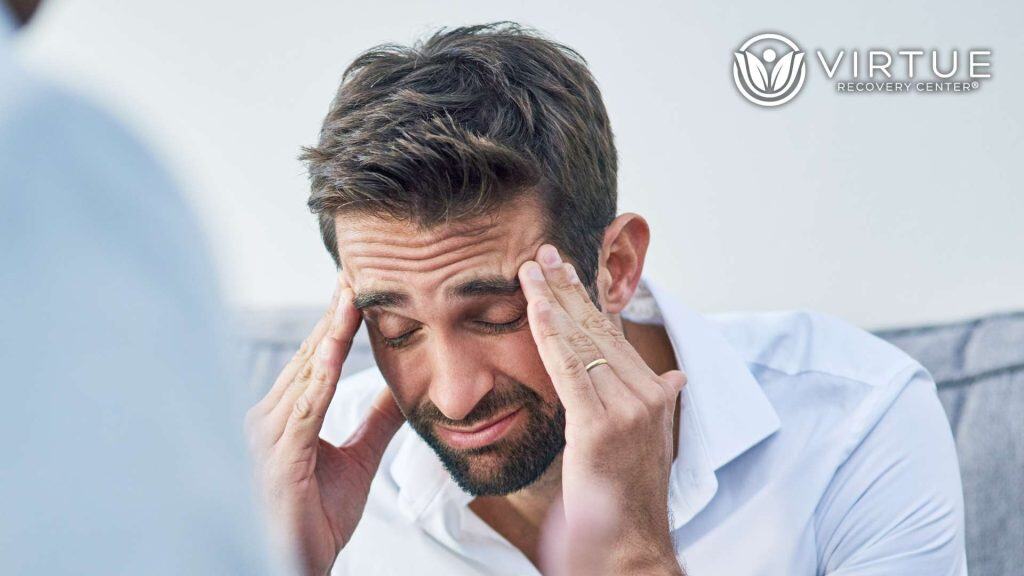Key Takeaways
-
LSD flashbacks can happen long after the drug is out of your system.
-
Hallucinogen Persisting Perception Disorder (HPPD) can cause lasting visual changes.
-
Stress, sleep loss, and other substances can make symptoms worse.
-
Treatment and support can help you manage and reduce symptoms.
-
Talking to a professional can be the first step toward feeling better.
Introduction
LSD is a powerful hallucinogenic drug that can cause intense changes in how a person sees and feels the world. Even after the drug wears off, some people continue to experience those changes again and again. These unexpected moments are known as flashbacks.
In some cases, these flashbacks become a regular part of life. This condition is called Hallucinogen Persisting Perception Disorder (HPPD). It can be scary and confusing—but you are not alone. Many people struggle with it, and help is available.
Let’s explore what causes these experiences and what you can do to feel better.
Understanding LSD Flashbacks
A flashback is when a person suddenly feels like they are back in the middle of an LSD trip, even though they haven’t taken the drug again. This can happen days, weeks, or even months after the last time the drug was used.
The flashback might last only a few seconds or go on for several minutes. You might see bright colors, patterns, or moving objects that aren’t really there. Sometimes, these experiences come without warning. Other times, they can be triggered by stress, fatigue, or even other drug use.
Flashbacks can be unsettling, especially if they come out of nowhere. For some people, these events happen only once or twice. But for others, they continue and become a part of daily life.
What Is HPPD (Hallucinogen Persisting Perception Disorder)?
HPPD is a rare condition where a person continues to see visual disturbances long after using a hallucinogenic drug like LSD. This is more than just the occasional flashback—it’s a constant or recurring problem.
Doctors recognize two types of HPPD:
-
Type 1: Random flashbacks that come and go.
-
Type 2: Ongoing visual symptoms that don’t go away.
People with HPPD may feel like their vision is “off” all the time. These symptoms are not part of a new trip—they’re the leftover effects of one that already ended.
HPPD can affect your ability to focus, read, drive, or even feel safe. It often causes anxiety or depression, too.
Common Symptoms of HPPD
People with HPPD often experience:
-
Flashing lights or geometric shapes
-
Bright colors or halos around objects
-
Trails that follow moving things
-
Objects that appear to breathe or shift
-
Sensitivity to light or movement
These symptoms may feel similar to being high, but the person hasn’t used anything. The changes can happen randomly or be triggered by stress, fatigue, or using other substances.
In addition to visual problems, people may also feel:
-
Panic or anxiety
-
Restlessness or confusion
-
Disconnected from reality
These experiences are real and can deeply affect a person’s life.
What Causes LSD Flashbacks and HPPD?
LSD affects the brain’s serotonin system, which plays a key role in mood, vision, and perception. Even after LSD is out of the body, changes in the brain may remain.
Experts believe HPPD is caused by how LSD disrupts communication in the brain. Some people are more likely to get HPPD than others. Risk factors may include:
-
Taking high doses of LSD
-
Using LSD often or mixing it with other drugs
-
Having a personal or family history of anxiety or mental illness
-
Experiencing a traumatic or frightening “trip”
HPPD is not fully understood, but it’s important to know it’s not a sign of going crazy. It’s a side effect of drug use that many people struggle with.
How to Manage LSD Flashbacks and Live With HPPD
If you’re having flashbacks or think you might have HPPD, here are some ways to help manage your symptoms:
1. Reduce Stress
Stress is a major trigger. Practicing deep breathing, meditation, or yoga can help calm your nervous system.
2. Get Enough Sleep
Lack of rest can make symptoms worse. Try to go to bed at the same time each night and avoid screens before bed.
3. Avoid Drugs and Alcohol
These substances can bring back or worsen symptoms. It’s best to stay away, especially from other hallucinogens or stimulants.
4. Practice Grounding Techniques
If a flashback happens, focus on your senses. Touch something with texture, listen to calming music, or name things you see around you to stay present.
5. Keep a Journal
Write down when the flashbacks happen, what you were doing, and how long they lasted. This can help you notice patterns or triggers.
6. Seek Connection
Talk to a friend, therapist, or support group. You don’t have to go through this alone.
When to Seek Professional Help
If your symptoms don’t go away or start to affect your daily life, it’s time to get help. You might feel scared, confused, or even hopeless—but there are people who understand and want to help.
Therapies like Cognitive Behavioral Therapy (CBT) can help you manage stress and anxiety caused by HPPD. In some cases, doctors may prescribe medications to reduce the symptoms.
If you’re struggling with drug use or mental health issues at the same time, a full treatment program that includes therapy, support, and medical care might be the best path forward.
Conclusion
LSD flashbacks and HPPD are serious and can interfere with your life. But with the right tools and support, you can learn to manage the symptoms and feel more in control.
Recovery starts with understanding what’s happening and asking for help. You’re not alone, and things can get better.
If you or someone you love is struggling with LSD abuse, call Virtue Recovery Chandler at 866-338-5779 today. A caring team member is ready to guide you toward healing.
FAQs About Long-Term Effects of LSD Addiction and Treatment Options
What are LSD flashbacks and how do they relate to HPPD?
LSD flashbacks are spontaneous recurrences of visual phenomena or other effects experienced during prior use of LSD, which can occur without a subsequent dose of the drug. These flashbacks are a symptom of Hallucinogen Persisting Perception Disorder (HPPD), a condition that can affect some LSD users after their initial use of the drug.
Can I take help for LSD flashbacks?
Yes, there are various forms of help for LSD flashbacks, including therapy, medications like benzodiazepines, and support groups. Consulting a psychiatrist who understands the complexities of hallucinogen use can also provide valuable guidance.
Is there a tolerance to LSD that can affect flashbacks?
Tolerance to LSD can develop with repeated use, meaning that users may need to take larger doses to achieve the same effects. However, the occurrence of flashbacks is not necessarily linked to tolerance and can happen regardless of how frequently someone has used the drug.
Are there any specific risk factors for HPPD?
Yes, risk factors for HPPD may include a history of mental health issues, the frequency and amount of LSD use, the occurrence of bad trips, and individual susceptibility to psychosis or other psychiatric conditions.
What should I do if I experience a flashback?
If you experience a flashback, it is important to stay calm and remind yourself that it is a temporary experience. Engaging in grounding techniques, such as deep breathing or focusing on your surroundings, can help. If flashbacks persist, consider seeking professional help.
How common is HPPD among LSD users?
The prevalence of HPPD varies, but studies and case reports suggest that a small percentage of LSD users may experience this condition. It is important to note that not everyone who uses LSD will develop HPPD.
Can LSD use lead to more serious psychiatric conditions?
While LSD is not considered addictive in the traditional sense, its use can potentially trigger or exacerbate underlying psychiatric conditions, such as schizophrenia or severe anxiety. Those with a history of mental health issues should approach LSD with caution.
What are the visual effects associated with LSD and HPPD?
The visual effects of LSD can include geometric patterns, bright colors, and distortions of reality. In HPPD, individuals may experience similar visual phenomena, which can be distressing and disruptive to daily life.
Are there any medications that can help with the side effects of LSD?
Some medications, such as benzodiazepines or certain antidepressants, may help alleviate the side effects of LSD and manage HPPD symptoms. It is essential to consult a healthcare provider for tailored treatment options.
What should I know about the diagnostic and statistical manual of mental disorders regarding HPPD?
The Diagnostic and Statistical Manual of Mental Disorders (DSM) includes criteria for diagnosing HPPD, which involves experiencing persistent visual disturbances following hallucinogen use. Understanding these criteria can help individuals seek appropriate help for their symptoms.
Resources
https://pmc.ncbi.nlm.nih.gov/articles/PMC9166883/
https://www.sciencedirect.com/science/article/abs/pii/0306460378900151
https://jamanetwork.com/journals/jamapsychiatry/article-abstract/493119








